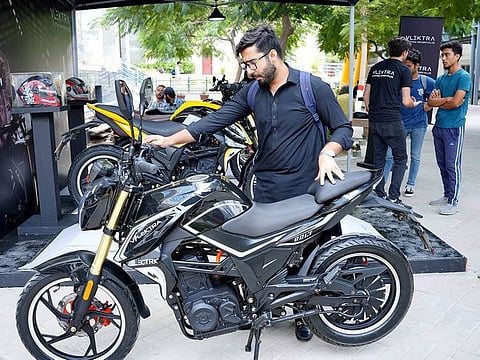Pakistan approves interest-free loans for e-bikes and e-rickshaws
The government aims to achieve 50% EV adoption by 2026

Islamabad: Pakistan’s top economic decision-making body has approved a loan programme for electric bikes and electric rickshaws to promote eco-friendly transportation and create job opportunities.
Pakistan’s Economic Coordination Committee (ECC), chaired by Finance Minister Ishaq Dar, has approved the Prime Minister’s Youth Business and Agriculture Loan Scheme at an initial estimated cost of about Rs7.5 billion to provide the financing facility for electric two and three-wheelers.
The programme will offer a clean loan of up to Rs. 0.5 million under tier-I of the scheme at a 0% markup rate for repayment in three years. This facility will be available for up to 15,000 e-bikes and rickshaws in the current financial year and is expected to be scaled up to 60,000 in 2023-24 and 100,000 in 2024-25.
The government aims to achieve 50 per cent EV adoption by 2026 with PM’s Youth Programme, State Bank of Pakistan, Bank of Punjab, and National Rural Support Programme will be involved in finalising the loan scheme.
Pakistan has over 26.3 million motorbikes on the roads, consuming roughly $3 billion worth of fuel each year.
The domestic market produces over 2 million annually. The government has so far issued 22 manufacturing licenses for e-bikes while the industry produced a total of 7,377 e-bikes during the 2021-22 fiscal year.
Despite an “increasing interest” in electric motorbikes due to rising petrol prices, sales have not yet caught up with the demand.
Pakistan’s first EV company Jolta Electric, which has sold over 10,000 motorbikes since its launch in July 2021, has called for better incentives for electric vehicle manufacturers.
Dr Muhammad Amjad, CEO of Jolta Electric, who earlier spoke to Gulf News, said that the challenges faced by manufacturers include the lack of a solid policy for the import and clearance of imported raw materials and the need for government incentives and subsidies for electric vehicle manufacturers in Pakistan.



